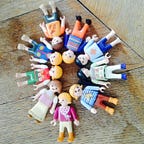Beauty
Beauty has become an ugly little word. Because we’ve got it all wrong.We think it is waxed bodies, engineered curves, or a youthful glow. But real beauty not, as Byung-Chul Han says in his wonderful essay Saving Beauty, a kind of smooth surface without any depth or pathos. Real beauty is something that strikes us with blows.
What is called beauty in the digital age is actually porn—an instant gratification of the senses that erases intimacy. And most of what we ingest in the digital age is porn in one way or another—including news, tv, and nature shows, it’s largely the sensation and the spectacle—grizzly bears copulating. But real beauty is the opposite of the ‘wow’ or the ‘like’ that porn culture elicits.
Real beauty is full of thorns, veils, and contradictions—it is absence and fullness both. Real beauty bleeds, real beauty hurts, real beauty is never safe—it whirlpools and annihilation as much as wildflowers and opulent oceans.
Real beauty is participation in silence and distance—it is the end of the explicit, the propositional, the informational. Real Beauty gives you no information, it gives you only rough clues; it beckons and calls but does not point the way. Real beauty is gestures; it doesn’t map or control. Real beauty is to be torn from the ordinary, to hang over an abyss, to linger in a field of mystery and paradox.
Han’s book on beauty tells us just how far we have strayed from any proper notion of beauty in the present age. He shows us how real beauty demands, not just a positive ‘emoji wow’, but a negative distance.
Real beauty—like love—hurts. If you see a radiantly beautiful woman or man, for instance—as opposed to today's simulacrum—it throws darts in your eyes. And if you are honest beauty also reveals your lack, your pain, your distance from the sublime. Beauty is pathic, it disassembles logic and myth.
Today we are pretty good at logos and mythos—at science and storytelling—but not particularly good at pathos or beauty. That is why it is hard to find a truly great artist in the digital age, even though the philosophers, psychologists, and scientists are legion. That is why we have to save beauty as Han suggests. To complete the picture.
Real beauty may just be the way out ‘The Meaning Crisis’ of which John Vervaeke speaks. We lack meaning because we lack beauty, even if we have an excess of experiences, ideas, and sensations. We need to become beautiful, Vervaeke tells us.
But Vervaeke doesn’t mean cosmetic beauty. It may just be the opposite. Beauty means becoming vulnerability to pain, to decay, to being disassembled. There is a crack in everything, as Leonard Cohen has told us, and beauty gets in through the crack—through the brokenness. The point is: beauty isn’t a perpetual spring —it is also a bare winter tree.
In the world of fake beauty, it is alway summer: sunny, bright, and without shadows—a land of ones and zeros where everyone is sexy and in the flush of life, never tired, broken, or irritated. It’s a false paradise, where we fuck with perfectly waxed and shapely bodies for eternity. It might seem like paradise but it is actually hell.
But Real beauty—and the real erotic for that matter— is about veils and distances, not consummation. It is in the erotic tension, not in the orgasmic relief.
Real beauty has all kinds of deep shadows, it is not just bright flickers of color. Go and look at a Rodin sculpture and you will feel the gravity of beauty. Go and look at Jeff Koons and you will see its violation—a sunny optimism which is actually a hellish entrapment of mirrors. Beauty is not positivity, as Han repeatedly points out.
Can you see the beauty in an old woman or man, as much as you salivate over the movie stars, pop singers, and the gym rats of today's fountain-of-youth culture? And are you able to see ugliness—the ugliness of the contemporary game—because without seeing that ugliness you actually can’t see beauty. Beauty requires its negation. Han’s brilliant point is that the ‘smooth’ actually takes away both from you: the gravity of ugliness, and the gravity of beauty.
Because we can’t see the ugliness of the emaciated dolls that are supposed to beautiful, you can’t see the beauty of your own lovers imperfections. Because we are addicted to the sterile, the clean, the bright, we can’t see the beauty of shadows. Because we can’t see the beauty of darkness, we fill the space with noisy bright forms and sexy ciphers who are immature and not deeply beautiful.
But beauty is not what you like. It fact it is often discovered in recoil. That is because it is difficult to contemplate, it is shocking. There is an excess shocking beauty actually—but we prefer the banal ugliness because it is comfortable. And beauty is the antithesis of comfort. We crush Her with our false positivity, our fake smiles and affirmations. But beauty annihilates all that in an instant, like Rilke’s angel who is truly terrifying to behold.
To conclude, we need to find the deeper meaning of the beautiful today—to become beautiful—not in innocence and immaturity, but in contemplation of mystery, in the shadows as much as the forms—not in nihilism or eternalism, nakedness or opacity, but in the the-in between.
Links:
Podcasts:
Sweeny vs Bard
Sweeny Verses
Support or contact Andrew Sweeny:
